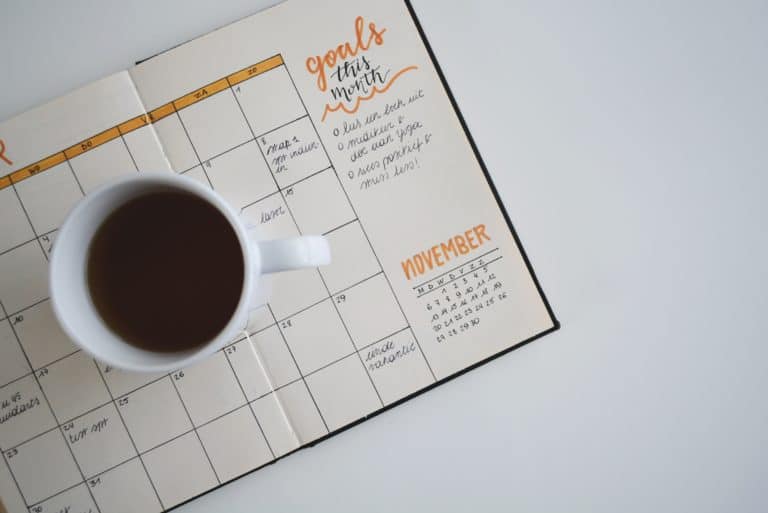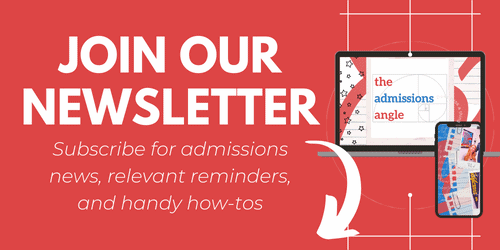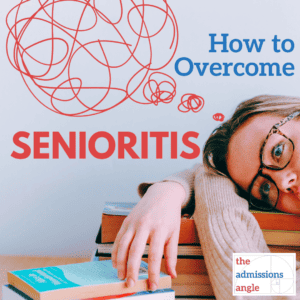
How to Ask for Teacher Recommendations
Teachers are encouraged to write letters of recommendation for students who ask for them, but how can you ensure that the letter will be good? In this article, we cover how to ask for teacher recommendations in a way that maximizes quality.

By NOELLE COMPTON
As you approach senior year, you may be asked to provide a letter of recommendation as part of a summer camp or college application. In a perfect world, that recommendation will be personal, glowing, and long because good recommendations are essential to most admissions processes. In fact, within most Common Data Sets, recommendations are considered ‘very important’ and carry significant weight.
If you are a young student, we definitely encourage you to build strong relationships with your teachers and counselors, assume an active role in your school’s community, and work hard in your classes. That way, once you’re a junior you can ask for teacher recommendations and feel confident that the contents therein will be good.
In this article, I will discuss:
- Who Should I Ask for a Recommendation?
- When Should I Ask for a Letter of Recommendation?
- What Makes a Letter of Recommendation Good?
- How to Ask for Teacher Recommendations
Who Should I Ask for a Recommendation?
While many summer programs offer flexibility in terms of who you can ask for a letter, most colleges are looking specifically for a counselor and a teacher recommendation (or two). In either case, here are some basic guidelines to follow:
For summer camp applications
If you are only allowed to include one recommendation, a teacher recommendation is best. That teacher should be somehow connected to the topic that your summer camp covers (e.g. math teacher for engineering camp). If you are allowed to include more than one recommendation, then you can branch out a bit with your second recommender. For example, if you volunteer with a local community group, the leader may write a recommendation. Likewise, a coach, administrator, or employer might be a good person to ask. Whoever you choose, make sure that they know your character well and that they’ll be able to speak to your specific accomplishments and good qualities.
For college applications
We recommend asking one humanities teacher and one STEM teacher (along with your counselor) to comfortably cover your bases. For humanities, English teachers are always a good bet but consider the major you are applying for. If you’re applying for a history or economics major, would you be better off asking a history or economics teacher? For STEM, a math teacher is a good bet, but the same rule applies. Regardless of who you are planning to ask, we strongly recommend that you choose a teacher from your junior year, rather than a teacher from earlier. An exception to this rule would be a sophomore-year teacher who you will definitely have again as a senior.
Extra recommendations
For college applications, there may be circumstances wherein you want to call in some reinforcements. For example, if you are waitlisted or deferred admission from your top choice school, you may be offered the opportunity to attach another recommendation. In this case, it could be helpful to ask someone like a coach, administrator, employer, or club advisor who knows you well. This can provide additional insight to you as a person that a teacher might not include in their letters.
When should I ask for letters of recommendation?

The more time you give a recommender to write a letter, the better it will (usually) be. For summer programs, this can be tricky because applications are only open for a short amount of time. In this case, ask a recommender as soon as possible and make sure that they are aware of the deadline before they agree to do it. Try to allow several weeks at least.
For college applications, you will have the added challenge of competing with your classmates for the best recommenders, since almost everyone will require one or more teacher recommendations. Therefore, the best time to ask for a letter of recommendation is in the spring of your junior year. That’s right, you should have your recommenders locked in before summer break even starts. This means that if you haven’t, work on strengthening your relationships and try to decide who you want to ask well in advance of asking them.
College Admissions Services
Schedule a Free Consultation
Meet with a mentor one-on-one via video chat to talk about your son/daughter’s admissions plan. Afterwards, receive a no-obligation Customized College Roadmap (CCR) with advice on courses, extracurricular activities, standardized tests, and Admissions Angle strategy.
What Makes a Letter of Recommendation Good?
This advice goes hand in hand with the next and final section, how to ask for teacher recommendations. However, it can also be helpful in your choice of who you’ll ask. Here are the criteria that we believe make a recommendation letter good:
Length
A long recommendation letter is better than a short recommendation letter. Letters that spill onto the second page reflect the idea that a student has accomplished many things, and teachers who are willing to go this extra mile are worth their weight in gold.
Personal details
The better a teacher knows you, the more details they will be willing to share about your contributions to the school community. They will be able to name the clubs and organizations that you are a part of, reference your projects and initiatives, and point to specific examples of what makes you great. A vague recommendation is about as useful as a vague ‘why us’ essay. “Strong student and good communicator” are just not as compelling as an anecdote about your efforts outside the classroom. If a letter feels copied and pasted with the name changed, it’s not a good feeling for any parties involved.
Specificity to goals
If you are applying to a specific school or program, then a good letter will be tailored to that school or program and discuss what, specifically, makes you a great fit. If you are planning to use one letter for many schools, then let your Admissions Angle strategy guide you. For example, a business school candidate’s letters will ideally reflect a strategic and business-savvy person. A psychology program candidate’s letters will reflect an empathetic and introspective person.
How to Ask for Teacher Recommendations
With the above qualities of a good recommendation letter in mind, you should endeavor to take steps to provide your recommender with everything that they could need to maximize results. Here are the steps that you’ll need to take:
Ask your preferred recommender
Once you have identified who you want to ask, you’ll want to set aside the time to ask them for a recommendation in person, if possible. This is not a conversation for the last 30 seconds of class. Rather, take advantage of the teacher’s office hours, advisement period, or the time before or after school.
When asking the teacher for a recommendation, it is good to lead with why you want them to write your letter. You can mention that you’ve always enjoyed their class, felt a special rapport, or were inspired to venture down a particular academic path with their guidance. Then, segue into the request: “I wondered if you would be willing to write a letter of recommendation on my behalf. You are my first choice, and it would mean so much to me.” Don’t be effusive, and if they seem hesitant, don’t push it. Most teachers will say yes, but they do not have to.
If they say yes, offer a heartfelt thank you and tell them that you’ll follow up that evening via email. If they say no, say thank you and that you understand. Trust me, you don’t want a reluctant letter. Trust that you will find someone else, someone who will be excited to recommend you.
Follow-up via email
After your teacher says yes, you’ll want to send a follow-up email that includes these items: 1) A heartfelt thank you in the body of the email and a note about the two things you’ll be attaching as separate files. Those two items are 2) Your resume and 3) A list of where you’re planning to apply with a short personal statement that reflects the qualities you hope the teacher will focus on in their letter. For your resume, I would encourage you to check out this how-to guide. For your list of colleges, include the schools and the majors for, say, your top five colleges.
Remind your teacher
If you ask for your recommendation in the spring, you should touch base with your teacher again within the first two weeks of school when you return in the fall. Provide them with any updates from your summer that you think could be helpful to their letter. It is helpful to do this via email, rather than in the hallway.
Confirm deadlines
About a month before recommendations are due, check in with your teacher via email once more and make sure that they will be able to submit on time. You will be able to see when the recommendation has been submitted in the Common Application, so once it appears, you don’t need to bother them anymore. However, if the deadline is getting uncomfortably close, like within two weeks, you may need to speak with them again via email.
Write a thank-you note
Once the recommendation has been submitted, make sure that you handwrite a thank-you note for your teacher. I also am a firm believer that cookies or a candy bar can go a long way toward expressing your gratitude. Teachers don’t have to write recommendation letters, and when they choose to, it usually happens on their own time. Don’t lose sight of this fact, and make sure that you are appropriately gracious throughout this process.
Now that you are an expert in how to ask for teacher recommendations, good luck! A bit of foresight and preparation can really be the difference between a mediocre and a glowing recommendation, so don’t delay. Happy asking!










